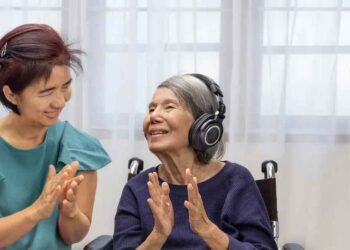Prostate cancer stands as a significant challenge, impacting millions of men globally. Though conventional remedies like surgery, radiation therapy, and chemotherapy have long been the primary choices, a rising number of individuals are now considering alternative methods to supplement or even substitute traditional approaches. This inclination toward alternative treatments for prostate cancer mirrors an expanding recognition of the significance of adopting a holistic perspective on health and overall well-being.
Immunotherapy
In the realm of alternative treatments for prostate cancer, immunotherapy emerges as a standout contender. Distinguished from conventional approaches that directly target tumors, immunotherapy orchestrates the body’s immune system to wage war against cancer cells. This method involves stimulating the immune system or introducing synthetic immune system proteins, fortifying the body’s defenses against prostate cancer. The appeal of immunotherapy lies in its potential to offer a promising avenue for treatment with fewer side effects than traditional therapies.
By harnessing the body’s natural defenses, this approach marks a paradigm shift in cancer treatment and underscores the importance of embracing holistic solutions. As the medical community delves deeper into immunotherapy’s efficacy, it paves the way for a future where prostate cancer patients can explore treatments that not only combat the disease but also prioritize the overall well-being of the individual, addressing both the physical and emotional aspects of the journey. This evolution signifies a broader recognition of the interconnectedness of health and the need for approaches that empower the body’s own mechanisms to combat illness while minimizing adverse effects, fostering a new era in prostate cancer care.
Hyperthermia
In the landscape of alternative treatments for prostate cancer, hyperthermia is gaining notable traction. This method entails elevating the temperature of prostate tissues, achieved either externally or internally, with the aim of intensifying the efficacy of radiation therapy or directly impairing cancer cells. Hyperthermia exhibits promise in augmenting the outcomes of standard treatments while mitigating harm to adjacent healthy tissues. As scientific exploration in this realm advances, hyperthermia may potentially evolve into a standalone treatment option, offering prostate cancer patients an innovative avenue that combines effectiveness with reduced collateral damage.
The growing interest in hyperthermia underscores the dynamic nature of cancer care, where diverse alternatives are explored to tailor treatments to individual needs and enhance overall treatment outcomes. As patients and healthcare providers embrace these evolving alternatives, the horizon of prostate cancer management broadens, providing a multifaceted approach that prioritizes both efficacy and the well-being of those undergoing treatment. This paradigm shift reflects a progressive stance in the pursuit of comprehensive solutions for prostate cancer, where innovative therapies play a pivotal role in reshaping the landscape of cancer care.
Dietary and Lifestyle Changes
Dietary and lifestyle changes also play a role in alternative prostate cancer treatment. Several studies have underscored a compelling connection between dietary choices and cancer outcomes, motivating patients to embrace plant-based diets abundant in antioxidants, vitamins, and minerals. Incorporating superfoods such as broccoli, tomatoes, and green tea into one’s daily meals holds the promise of bolstering the body’s inherent defense mechanisms, potentially impeding the advancement of prostate cancer.
This holistic approach acknowledges the interplay between nutrition and health, highlighting the significance of a well-rounded lifestyle in the pursuit of comprehensive well-being for those navigating the complexities of prostate cancer. As patients increasingly recognize the impact of lifestyle choices on their health, these integrative strategies become integral components of the evolving landscape of prostate cancer care.
Mind-Body Therapies
Mind-body therapies, such as yoga and meditation, are gaining recognition as complementary treatments for prostate cancer. These practices focus on reducing stress and promoting overall well-being, which can positively impact the body’s ability to cope with cancer. Stress reduction is beneficial for mental health and may also have tangible physical benefits, influencing the course of the disease.
Proceeding with Caution
It’s crucial to note that alternative prostate cancer treatments should be approached with caution and in consultation with medical professionals. The effectiveness of these approaches varies from person to person, and they should not be viewed as replacements for evidence-based conventional treatments. Instead, they should be considered as complementary strategies that may enhance the overall well-being of individuals battling prostate cancer.
Conclusion
In conclusion, the landscape of prostate cancer treatment is evolving, with more individuals exploring alternative approaches to complement traditional methods. The possibilities are expanding from immunotherapy and hyperthermia to dietary changes and mind-body therapies. While research in this field continues, it is essential for patients to engage in open and informed discussions with their healthcare providers to determine the most appropriate and effective course of action for their unique circumstances. The future of prostate cancer treatment may well be a holistic one, where a combination of conventional and alternative approaches leads to more personalized and effective care.












